Featured
 Trapped in the Trumpocene nightmare. By Chauncey Devega / Salon
Trapped in the Trumpocene nightmare. By Chauncey Devega / Salon
Is there any way to escape this era?
Trump remains very popular among his MAGA base and Republican voters more broadly. He almost quite literally owns the Republican Party and remains its presumptive 2024 presidential nominee. However, Trump’s support continues to soften among the right-leaning independent voters that he would presumably need in order to capture the White House again. Republican Party elites and other insiders are continuing their efforts to undermine Donald Trump because while they agree with his neofascist agenda they increasingly view him personally as a liability and not the best vessel for injecting that poison into American society long-term.
In all, the Age of Trump and the Trumpocene are a fascist fever dream. The American people, after seven years of experience, are only somewhat closer to seeing its borders. But the American people will not be able to escape unless they and their responsible leaders understand the power of its many dimensions. Only then will the American people, perhaps, finally be able to escape this Trumpocene nightmare. Read more
Political / Social
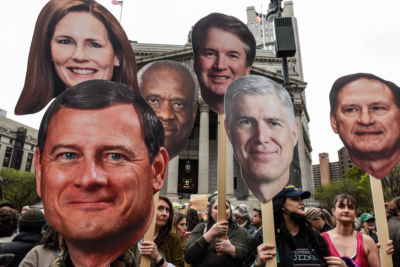 The Democrats’ Appalling Failure to Confront the Rogue, Right-Wing Supreme Court. By Simon Lazarus / TNR
The Democrats’ Appalling Failure to Confront the Rogue, Right-Wing Supreme Court. By Simon Lazarus / TNR
The party needs to take its cue from America’s most celebrated leaders, who had no fear of talking directly to the public about the Constitution.
This is nothing new. For decades, Democratic politicians have dodged challenging the ultra-right’s drive to junk the post–New Deal liberal Constitution, with made-up doctrines that, in the apt words of liberal Justice Elena Kagan, would make “most of government unconstitutional.” Read more
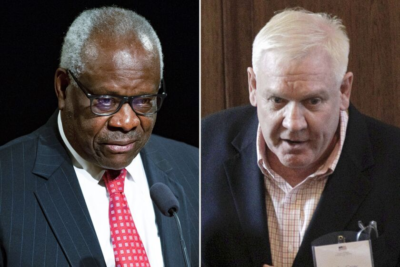 The Clarence Thomas Scandal Is About More Than Corruption. By Corey Robin / Politico
The Clarence Thomas Scandal Is About More Than Corruption. By Corey Robin / Politico
Corey Robin is a distinguished professor of political science at Brooklyn College and the City University of New York Graduate Center and the author of The Enigma of Clarence Thomas
Money hasn’t paved the way to Thomas’ positions. On the contrary, Thomas’ positions have paved the way for money. A close look at his jurisprudence makes clear that Thomas is openly, proudly committed to helping people like Crow use their wealth to exercise power. That’s not just the problem of Clarence Thomas. It’s the problem of the court and contemporary America. Read more
 The Tennessee Expulsions Are Just the Beginning. By Ronald Brownstein / The Atlantic
The Tennessee Expulsions Are Just the Beginning. By Ronald Brownstein / The Atlantic
Red states are trying to make their own rules.
The red-state drive to reverse the rights revolution of the past six decades continues to intensify, triggering confrontations involving every level of government. All of these actions are coming as red states, continuing an upsurge that began in 2021, push forward a torrent of bills restricting abortion, LGBTQ, and voting rights; loosening controls on gun ownership; censoring classroom discussion of race, gender, and sexual orientation; and preempting the authority of their Democratic-leaning metropolitan cities and counties. Read more
Related: Alabama education director ousted over ‘woke’ training book. By AP and Politico
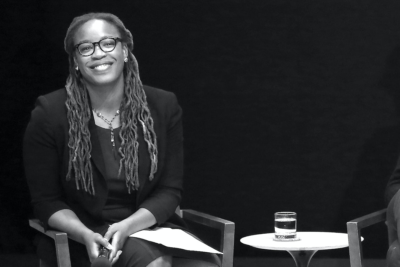 Heather McGhee on Moving Beyond “Drained-Pool Politics.” By Felicia Wong and Michael Tomasky / TNR Podcast
Heather McGhee on Moving Beyond “Drained-Pool Politics.” By Felicia Wong and Michael Tomasky / TNR Podcast
The bestselling author argues that cross-racial solidarity can result in a better America for all.
In her book The Sum of Us, Heather McGhee explores the ways racism negatively affects how public goods and services are perceived and implemented. She argues that the “zero sum mindset”—the belief that any policy that benefits people of color comes at the expense of white people—has resulted in trends like declining support for public infrastructure.
Bridging this social divide won’t be easy. In this episode of How to Save a Country, Heather joins Michael Tomasky and Felicia Wong to discuss ways to approach the problem and to talk about the “solidarity dividend,” a term she uses to describe the material improvements we can all enjoy if we work across difference to achieve a common good. She thinks this could be our way out of the zero-sum politics. Listen here
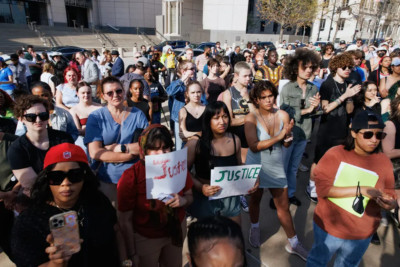 After Front Door Shooting, Kansas City Grapples With Race. By Mitch Smith / NYT
After Front Door Shooting, Kansas City Grapples With Race. By Mitch Smith / NYT
In a city that has seen a new wave of business investment, the shooting of Ralph Yarl, 16, drew new attention to persistent disparities between Black and white residents. Shown are Protesters who attended a rally for Ralph Yarl, the 16-year-old who was shot when he mistakenly rang a doorbell at the wrong house in Kansas City, Mo.Credit…Chase Castor/Getty Images
But the shooting of a Black teenager named Ralph Yarl this month by an older white man on the city’s northern edge jolted residents and shifted the civic conversation. By the time prosecutors filed felony charges last week against the accused gunman, Andrew D. Lester, 84, Kansas City found itself uncomfortably in the national spotlight, and residents were asking how a teen could be shot for something as trivial as ringing the wrong doorbell, and why it took four days to bring charges. Read more
Related: Blackness is a threat, even when embodied by a child. By Claretta Bellamy / NBC News
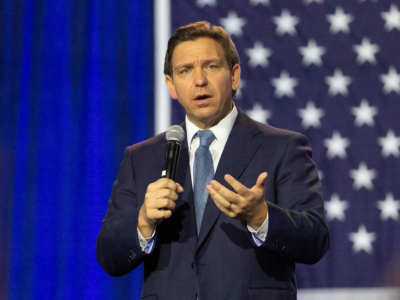 DeSantis’s plan to starve college diversity efforts advances in Florida. By Jack Stripling / Wash Post
DeSantis’s plan to starve college diversity efforts advances in Florida. By Jack Stripling / Wash Post
Bills targeting college diversity spending, ‘identity politics’ pass committees
Months after Florida Gov. Ron DeSantis (R) called for the dismantling of diversity, equity and inclusion programs across the state’s public colleges and universities, lawmakers have advanced a pair of bills that would starve the programs of money and significantly restrict how race is discussed in many college classrooms. Read more
Related: At U.Va., an Alumnus Attacked Diversity Programs. Now He Is on the Board. By Stephanie Saul / NYT
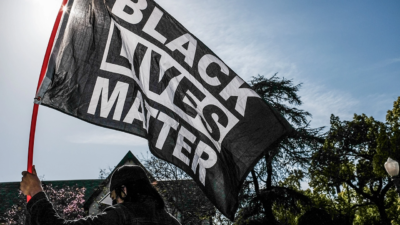 Has Black Lives Matter Changed the World? By Jay Caspian King / The New Yorker
Has Black Lives Matter Changed the World? By Jay Caspian King / The New Yorker
A new book makes the case for a more pragmatic anti-policing movement—one that seeks to build working-class solidarity across racial lines. In his new book, “After Black Lives Matter,” the political scientist Cedric Johnson blows right past the sort of hemming and hawing that has become de rigueur in today’s conversations about the George Floyd protests.
Much like Barbara Fields and Adolph Reed, two Black scholars cited in the book, Johnson is a socialist, and his argument is “inspired and informed by the left-wing of antipolicing struggles,” which he takes great care to distinguish from what he sees as the more corporatized and popular vision of Black Lives Matter, and the naïvete of the police-abolition movement. He does not dismiss the pernicious impact that racism has upon the lives of people in this country, but he does not see much potential in a movement that focusses on race alone, nor does he believe that it accurately assesses the problem with policing. Read more
Ethics/ Morality / Religion
 Hopelessness about the future is a key reason some Black young adults consider suicide, new study finds. Janelle R. Goodwell / The Conversation
Hopelessness about the future is a key reason some Black young adults consider suicide, new study finds. Janelle R. Goodwell / The Conversation
Feeling hopeless about the future is one of the primary reasons Black young adults consider suicide.
That is one of the key findings from a new study I published in the Journal of Racial and Ethnic Health Disparities. Hopelessness proved to be the most common reason that Black men considered suicide, and it was one of the most common reasons Black women consider suicide. A recent report from the Centers for Disease Control and Prevention shows a 36.6% increase in suicides among young Black Americans ages 10 to 24 from 2018 to 2021. Read more
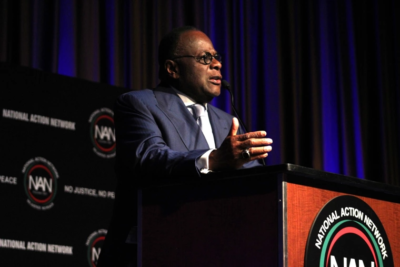 Pastor Franklyn Richardson: ‘Black Church cannot be understood separately from civil rights movement.’ By Leonard Blair / Christian Post
Pastor Franklyn Richardson: ‘Black Church cannot be understood separately from civil rights movement.’ By Leonard Blair / Christian Post
W. Franklyn Richardson, senior pastor of Grace Baptist Church in the city of Mount Vernon, N.Y., and chairman of the board of the Rev. Al Sharpton’s civil rights organization, National Action Network, suggested that the “Black Church cannot be understood separately from the civil rights movement” because faith leaders and “the Church” are key drivers of the movement.
“The Church exists within and underlies every aspect of the movement, from its leaders to the devotion, tenacity and hope that keep it strong,” Richardson said during the minister’s luncheon at NAN’s annual convention last Friday. “It is our faith and our community that give us the resilience, every day, to continue the fight for justice.” Read more
 Christian nationalists have provoked a pluralist resistance. By Ruth Braunstein / RNS
Christian nationalists have provoked a pluralist resistance. By Ruth Braunstein / RNS
Those fighting for our democracy should be making headlines, too.
Christian nationalism — the idea that being Christian is core to the American identity — is nothing new, either in American religious culture or its politics. But it used to be a radical proposal, and holding Christian nationalist views disqualified politicians and even clergy from higher leadership. Recently, however, it has been embraced as a badge of honor. These developments rightfully raise concern. But there is another, relatively untold, side of this story: The most recent rise of Christian nationalism has ignited a wave of resistance. Read more
Historical / Cultural
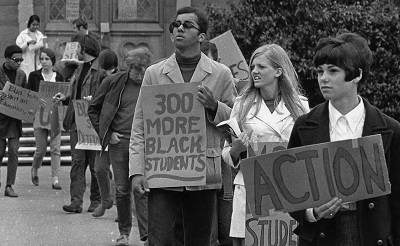 Black students in Washington state played key role in the Civil Rights Movement, new book states. By Marc Arsell Robinson / The Conversation
Black students in Washington state played key role in the Civil Rights Movement, new book states. By Marc Arsell Robinson / The Conversation
When it comes to civil rights history, the focus is often on the marches, boycotts, sit-ins and other protests that took place in the South. In “Washington State Rising,” Marc Arsell Robinson, assistant professor of African American history at California State University, San Bernardino, takes a look at the civil rights protests that occurred in a lesser-examined region of the United States: the Pacific Northwest. The following Q&A is about what Robinson found for his forthcoming book, which is set to be published in August 2023. Read more
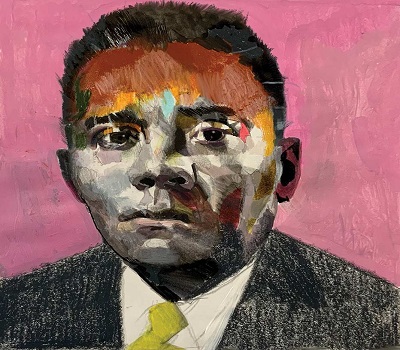 C.L.R. James, Man of Paradox. By Gerald Horne / The Nation
C.L.R. James, Man of Paradox. By Gerald Horne / The Nation
Cyril Lionel Robert James was a man of paradox. The Trinidadian-born revolutionary was a lanky 6-foot-3—“lean as a pole,” with “long pianist fingers” that one could easily imagine flying across a typewriter keyboard as well.
However, as we learn in John Williams’s new biography, CLR James: A Life Beyond the Boundaries, he “never learned to type and relied on women to type up his handwritten articles and manuscripts,” of which there was a veritable tsunami. Likewise, while James cared little for money and possessions—other than books and albums—he was a connoisseur of exquisite wine and tasty meals. A fierce “anti-Stalinist,” he still collaborated fruitfully in 1930s London with the decidedly Russophilic Paul Robeson, widely suspected of being a member of the Communist Party, and he recommended the writings of US Communist historian Herbert Aptheker and hailed the later work of W.E.B. Du Bois, even after he joined the US Communist Party in 1961. Read more
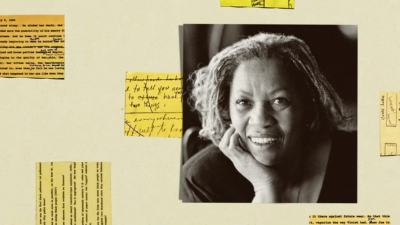 The Exhibit That Reveals Toni Morrison’s Obsessions. By Syreeta McFadden / The Atlantic
The Exhibit That Reveals Toni Morrison’s Obsessions. By Syreeta McFadden / The Atlantic
A display of personal materials from the late author’s archive shows her genius, the rigors of her research, and her capacious empathy.
Curated by Autumn Womack, an assistant professor of English and African American studies at Princeton, the exhibit features Morrison’s private papers and materials from the university’s archive (Morrison was a professor there from 1989 until 2006). Among the 75 objects on view are the first and last pages of an unpublished short story titled “Gia,” with iterative signatures of her given name, Chloe, before she settled on her nom de plume, Toni; early correspondences between Morrison and editors at Doubleday and Macmillan who offered notes on The Bluest Eye; sketches envisioning 124 Bluestone Road, the home haunted by the baby ghost in Beloved; and drawings that map out the fictional Oklahoma town and convent in Paradise, alongside real snapshots of Oklahoma’s landscape. Read more
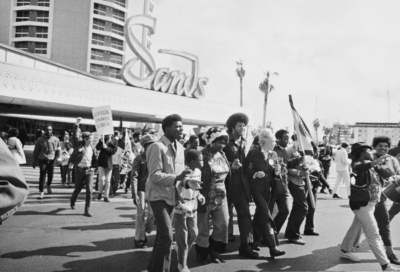 These Black Mothers Bet on Themselves and Transformed Las Vegas. By Annellise Orleck / Mother Jones
These Black Mothers Bet on Themselves and Transformed Las Vegas. By Annellise Orleck / Mother Jones
Proving that they were the real experts on poverty and how to alleviate it.
On March 20, 2023, Storming Caesars Palace, a documentary directed by Hazel Gurland-Pooler, premiered on PBS. It was based on the 2005 book Storming Caesars Palace: How Black Mothers Fought Their Own War on Poverty, by Dartmouth history professor Annelise Orleck, which was rereleased in an expanded edition this month. It chronicles the remarkable story of a group of poor mothers who in 1971 shut down the Las Vegas Strip in protest of welfare cuts and then founded Operation Life, one of the most successful programs of the War on Poverty era. Read more
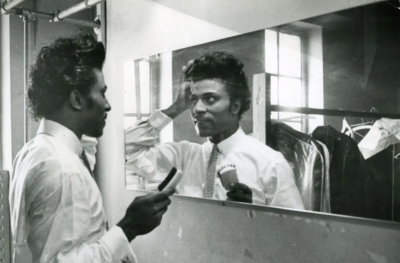 ‘Little Richard: I Am Everything’ Review: The Nitty-Gritty Beyond ‘Tutti Frutti.’ By Ben Kenigsberg / NYT
‘Little Richard: I Am Everything’ Review: The Nitty-Gritty Beyond ‘Tutti Frutti.’ By Ben Kenigsberg / NYT
Little Richard in 1956. He is the subject of the documentary “Little Richard: I Am Everything.”Credit…Pictorial Press Ltd/Alamy Stock Photo/Magnolia Pictures
Judging from “Little Richard: I Am Everything,” the best way to understand the self-proclaimed “architect of rock ’n’ roll” is through his contradictions. In this documentary, directed by Lisa Cortés, Little Richard, who died in 2020, is seen as a musician who could simultaneously lay the groundwork for an entire genre and not get his due. Without him, we probably wouldn’t have the Beatles, the Rolling Stones, David Bowie or Prince — artists who were happy to cite his influence even as they stole his thunder and his style. Read more
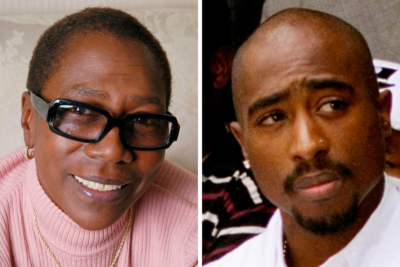 A new docuseries explores the Black Panther who shaped Tupac: His mom. By DeNeen L. Brown / Wash Post
A new docuseries explores the Black Panther who shaped Tupac: His mom. By DeNeen L. Brown / Wash Post
The five-part FX and Hulu docuseries ‘Dear Mama’ premieres Friday
She was a powerful, revolutionary voice for the people, a voice the government tried to silence. In the pre-dawn hours of April 2, 1969, Afeni Shakur, who would become the mother of the legendary hip-hop artist Tupac Shakur, was arrested with 20 other members of the Black Panther Party for Self-Defense in Harlem. The group was falsely accused of conspiring to bomb buildings in New York. Read more
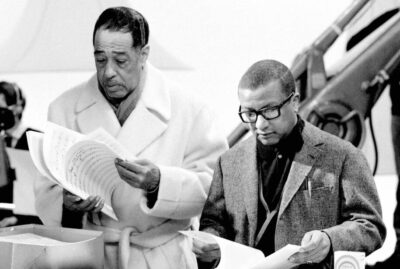 Black Music Sunday: Celebrating Shakespeare’s birthday with jazz. By Denise Oliver Velez / Daily Kos
Black Music Sunday: Celebrating Shakespeare’s birthday with jazz. By Denise Oliver Velez / Daily Kos
“Somehow I suspect that if Shakespeare were alive today, he might be a jazz fan himself.” -Duke Ellington
Around the globe, and especially in the U.K., April 23 is celebrated as National Shakespeare Day, when we commemorate the commonly accepted date for the 1564 birth of the Bard of Avon himself, William Shakespeare. Interestingly, April 23 was also the date of his death in 1616 at age 52. It should come as no surprise that members of music royalty would pay homage to the magic of Shakespeare’s words in music—including, and perhaps most notably, the great jazz pianist, bandleader, and composer Duke Ellington and his alter ego, composer-arranger Billy Strayhorn. Listen here
 ‘Abbott Elementary’ Lets Black Kids Be Kids. By Nicole Achempong / The Atlantic
‘Abbott Elementary’ Lets Black Kids Be Kids. By Nicole Achempong / The Atlantic
It’s one of the show’s grandest and most moving gestures.
Black kids across the country are significantly more likely to be disciplined than kids of other races and routinely receive harsher punishments than white students for nearly identical behavior. In Philadelphia, where Abbott Elementary is set, Black elementary schoolers are more than twice as likely to be suspended as their white classmates. The show doesn’t explicitly mention these figures. As Brunson has said, her characters don’t sit down and recite the statistics that shape their day-to-day lives; they’re overworked teachers at an overlooked school in West Philly—“they don’t have time.” Read more
Sports
 ‘White Men Can’t Jump’ Remake Trailer Takes On Race, Culture And Basketball. By Kimberly Richards / HuffPost
‘White Men Can’t Jump’ Remake Trailer Takes On Race, Culture And Basketball. By Kimberly Richards / HuffPost
The official trailer for the remake of “White Men Can’t Jump” is here.
The trailer, which was released Thursday, features actor Sinqua Walls and rapper Jack Harlow, who star in the film as characters Kamal and Jeremy, respectively. The clip begins with Kamal and Jeremy on a basketball court taking part in a bet to see who can make more shots. Jeremy wins the bet, and later accuses Kamal of assuming he couldn’t play basketball because he’s white, to which Kamal responds: “No, I assumed you couldn’t hoop because you were dressed like a white girl at Whole Foods.” Read more
 Anonymous NBA player poll 2023: Who’s the MVP? Most overrated player? Best and worst fans? Sam Amick and Josh Robbins / The Athletic
Anonymous NBA player poll 2023: Who’s the MVP? Most overrated player? Best and worst fans? Sam Amick and Josh Robbins / The Athletic
How do NBA players really feel about the questions that fans debate all the time?
Who would the players sign first if they had a chance to start a team from scratch? Which arena has the worst fans? Who is the coach, other than their own, they would most like to play for? We know the players’ opinions now. We know because journalists from The Athletic spoke to 108 players, asked these questions (and more) and granted anonymity to allow players to speak their minds. During the final three weeks of the regular season, we polled nearly one-quarter of the league’s players — after practices, at morning shootarounds and before and after games. Read more
 “No Rain in the Forecast”—Fans Slam Bubba Wallace as They Dismiss NASCAR’s Bold “Momentum” Claim. By Dasnoor Anand / Essentially Sports
“No Rain in the Forecast”—Fans Slam Bubba Wallace as They Dismiss NASCAR’s Bold “Momentum” Claim. By Dasnoor Anand / Essentially Sports
NASCAR driver Bubba Wallace secured fifth position in qualifying ahead of the race at the Talladega Superspeedway. This is his best performance in qualifying this season and NASCAR’s official Twitter handle shared a tweet hyping up Wallace‘s #23 team. However, this did not go down well with many fans and they questioned NASCAR’s claims of “momentum” for the #23 team. Wallace has been a controversial figure in NASCAR since he first entered the sport. In 2020, he made headlines when he spoke out against the Confederate flag, calling for its removal from NASCAR events. Read more
Site Information
Articles appearing in the Digest are archived on our home page. And at the top of this page register your email to receive notification of new editions of Race Inquiry Digest.
Click here for earlier Digests. The site is searchable by name or topic. See “search” at the top of this page.
About Race Inquiry and Race Inquiry Digest. The Digest is published on Mondays and Thursdays.
Use the customized buttons below to share the Digest in an email, or post to your Facebook, Linkedin or Twitter accounts.